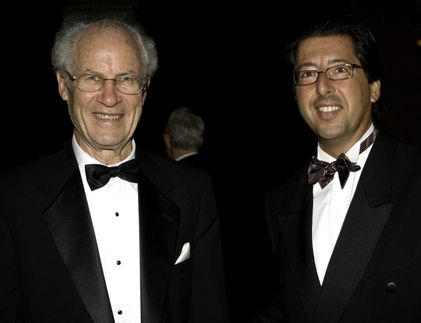U of A-led experiment at CERN could rewrite laws of physics
Advertisement
An experiment led by a University of Alberta researcher, at the Large Hadron Collider (LHC) at CERN, could dramatically change our concepts of basic physics, revolutionize our understanding of the Universe and could eventually lead to technologies in future generations that right now only exist in science fiction.
U of A physics professor James Pinfold is leading an international team of physicists who will use ultra high energy proton collisions. The protons will move at very near the speed of light, in search for a hypothetical particle, called the magnetic monopole.
Conventional understanding of magnets is that they must have north and south poles. In 1930 it was shown that a sub atomic particle with just a single magnetic pole could exist. Several modern theories of physics are built on the theoretical existence of magnetic monopoles.
Last year, researchers in France and Germany reported the observation of certain states of spin ice, a kind of crystalline material with essentially the same atomic arrangements as water ice that would create monopole-like particles. But Pinfold warns, "these 'quasi-monopoles' should not be confused with the real thing being sought by the U of A led collaboration at CERN."
At CERN, on the Swiss, Italian border, Pinfold's team will use the LHC, a particle accelerator 27 kilometres in circumference, to search for magnetic monopoles in the shrapnel like debris produced by colliding protons. The proton collisions will create unprecedented energy, 14 million electron volts. The tiny fireballs created in the impact will duplicate the energy produced just after the Big Bang, the event that created the universe.
Most read news
Other news from the department science

Get the chemical industry in your inbox
By submitting this form you agree that LUMITOS AG will send you the newsletter(s) selected above by email. Your data will not be passed on to third parties. Your data will be stored and processed in accordance with our data protection regulations. LUMITOS may contact you by email for the purpose of advertising or market and opinion surveys. You can revoke your consent at any time without giving reasons to LUMITOS AG, Ernst-Augustin-Str. 2, 12489 Berlin, Germany or by e-mail at revoke@lumitos.com with effect for the future. In addition, each email contains a link to unsubscribe from the corresponding newsletter.





























































